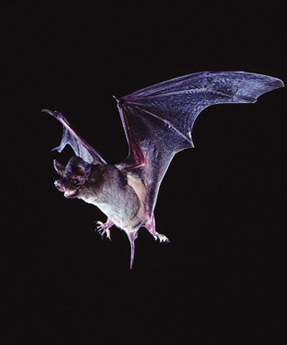Bats provide economic and ecological services
 (CNS): New environmental research has revealed the significant economic value of bats to the US cotton business. In the summer months, the Brazilian free-tailed bat migrates from its habitat in central Mexico to breeding grounds in the north of the country and south western areas of the United States, where it feeds on pests. The study found that this natural form of pest control has an economic value of US$740,000 taking into account the value of cotton crops that would have been lost in the absence of bats and the savings on pesticides. The UN has also emphasized the value of ecological services bats provide around the world and although environmentalists here have been pushing this message for several years all species of bats in Cayman remain unprotected.
(CNS): New environmental research has revealed the significant economic value of bats to the US cotton business. In the summer months, the Brazilian free-tailed bat migrates from its habitat in central Mexico to breeding grounds in the north of the country and south western areas of the United States, where it feeds on pests. The study found that this natural form of pest control has an economic value of US$740,000 taking into account the value of cotton crops that would have been lost in the absence of bats and the savings on pesticides. The UN has also emphasized the value of ecological services bats provide around the world and although environmentalists here have been pushing this message for several years all species of bats in Cayman remain unprotected.
"Bats perform an essential role as an agent of natural pest control by generating economic, social and environmental benefits in a Green Economy," said the Conservation of Migratory Species of Wild Animals (UNEP/CMS) Acting Executive Secretary Elizabeth Maruma Mrema.
Migratory species including bats can provide biological solutions to increase economic gains while reducing harm to the environment.
At the forthcoming sustainable development conference in Brazil, Rio+20 in June the Brazilian free-tailed bats (Tadaridabrasiliensis) will be one of the subjects that demonstrate how these flying mammals can reduce highly destructive agricultural pests.
As predators, bats are very efficient at eliminating pests over a wide area. A single female Brazilian free-tailed bat consumes eight grams of adult insects every night, which is about two thirds of her body weight. Up to 20 adult bollworm moths are eaten by a single bat each night.
Rodrigo Medellín, co-author of the study and Ambassador of the Year of the Bat said: "We must strive to conserve bat habitats worldwide for the sake of economic benefits alone. In addition to their role as a pest control, bats provide key services such as seed dispersal and pollination of economically and ecologically important plants. The educational initiative of the Convention on the Conservation of Migratory Species of Wild Animals is an essential tool to convey this crucial message."
Category: Science and Nature


With this incredible outbreak of mosquitos, we should all be encouraging bats. Unfortunately, I have too many trees for a bat house. I recommend that anyone with a large open space should put up a bat house and enjoy a lot fewer flying insects!
Cayman Islands Wildlife Rescue were big advocates for bat houses and bat house plans are on their site. It's a shame their funding was pulled when there is an environmental protection fund with tens of millions sitting in it, sitting idle.
It is not idle, it is being saved for future (mis)appropriation.
Cayman Wildlife Rescue and the Bat Conservation program are programs of the National Trust. Although Cayman Wildlife Rescue has been suspended, the Bat program is still in operation despite repeated cuts in government funding. For more information visit the website http://www.nationaltrust.org.ky
Some bats eat nearly their body weight in flying insects each night. That is why we've had homemade bat boxes for the last 15 years.
In the summer, people come over to our house and have said, "that bat was divebombing me!" Nope. The bat was after what was after YOU.
National Trust of the Cayman Islands has a great deal of information on bats, including design drawings of how to construct your own bat boxes:
http://www.nationaltrust.org.ky/environment/bats/house-why.html